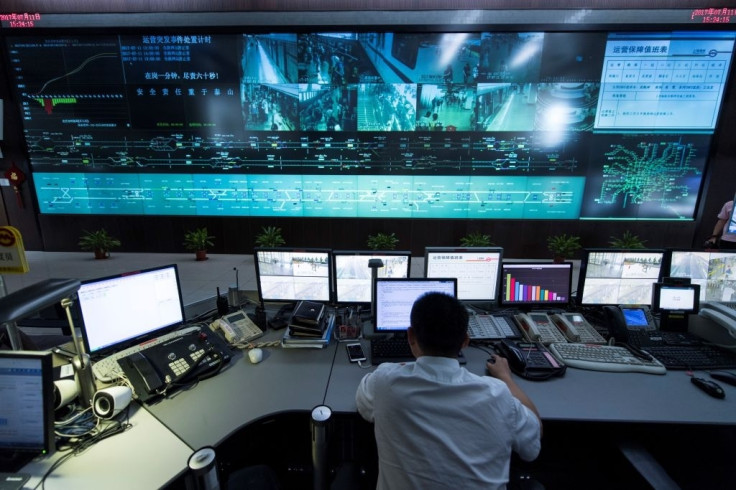Caught in 7 minutes flat: China CCTV network displays its awesome surveillance capability
The Chinese surveillance system boasts 170 million cameras and will see a three-fold increase over the next three years.

In what looks like a scene straight out of George Orwell's classic, 1984, police in China tracked down and "captured" a BBC reporter in just seven minutes, in an astounding display of the capabilities of their CCTV surveillance network.
Reporter John Sudworth recently took on the daring task of putting the Chinese surveillance system to test. Sudworth hadn't committed any crime, and his task was more of a stunt to illustrate the power and effectiveness of the surveillance system, which has been touted as the most expansive in the world.
The reporter was given rare access to the police control room where his image was taken. Then, he tried blending in the crowd in order to remain undetected in the city of Guiyang, which boasts of a population of 3.5 million.
But it was only a matter of seven minutes before he was found and captured by the authorities.
Sudworth filmed how he was trying to evade the vast network of CCTV cameras with a selfie stick. The complete video of his 'capture' was shared by BBC on its website, with a snippet on Twitter.
How long can a BBC reporter stay hidden from CCTV cameras in China? @TheJohnSudworth has been given rare access to put the world's largest surveillance system to the test pic.twitter.com/vLGQYN7ZB9
— BBC News (World) (@BBCWorld) December 10, 2017
Currently, China's vast surveillance network boasts of as many as 176 million CCTV cameras, with facial recognition and AI technologies. The cameras can detect a person's age, gender, ethnicity and can even be used by the police to match a suspect's face with his ID card, car, or relatives, and trace back all his recent movements.
Among other things, cameras coupled with facial recognition are also being used for routine activities such as entering a workplace or withdrawing cash from ATM, according to a report in Wall Street Journal. Even a KFC restaurant in the country suggests menu after assessing age and gender of people using such a technology.
Such systems, as TechCrunch reports, are also used by private organisations, for a range of tasks such as to monitor workers and processes in factories. But critics have warned that the massive amount of data collected this way could be abused by the state.
The network is likely to grow bigger with over 400 million cameras being introduced over next three years, per WSJ. The US, on the other hand, only has some 50 million cameras on its streets.






